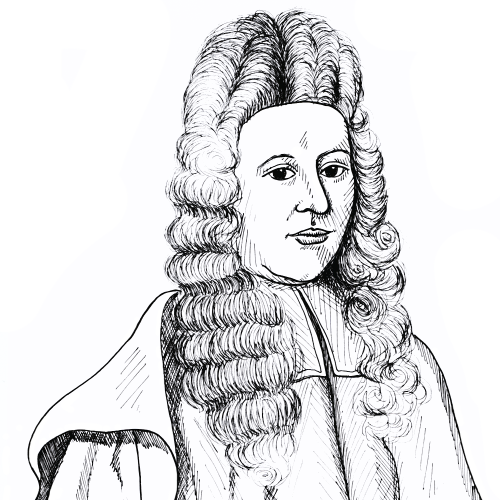Liberty Matters
Anti-Army Sentiment in Literature

I think David Wootton makes a good point about the social embeddedness of the officer corps of the British army in the later 18th century and thereafter. However, it is interesting that this social reality -- if reality it was -- was not faithfully reflected in literature. David points to the novels of Jane Austen as an illustration of the point he is making, but I think they don’t really bear it out. If one thinks of the army officers in Austen’s novels, they are unreliable philanderers like George Wickham in Pride and Prejudice or overbearing martinets like General Tilney in Northanger Abbey. The most sympathetic of them is the broken and blighted, but at least honorable, Colonel Brandon in Sense and Sensibility. These army officers are certainly present in gentry society at the time. But they are not entirely reliable or vigorous members of it.
Austen’s soldiers form a sharp contrast with her sailors, who are without exception drawn with admiration as paragons of honorable manhood, albeit in slightly differing styles. William Price, in Mansfield Park, and Frederick Wentworth, Admiral Croft, and James Benwick in Persuasion, all show Austen’s fondness for the senior service (a partiality which may of course have been influenced by the fact that two of her brothers, Charles and Frank, served in the Navy and rose to the rank of admiral). It was a partiality (or prejudice) susceptible of some nuance. In Mansfield Park Fanny’s feckless father, although living in Portsmouth, is an officer in the marines -- seagoing rather than seafaring, then, and tainted with the moral weakness which Austen seems to have associated with the army and not with the navy. The anti-standing-army pamphleteers were also great advocates of the navy, as a military force which could never be used to intimidate the native population.
Other examples from the 19th-century novel come to mind -- in Vanity Fair, for instance, of the three army officers amongst the major characters the loyal (and rather Colonel Brandon-like) George Dobbin is outnumbered by the vain and shallow George Osborne and the wonderfully raffish Rawdon Crawley. The Rawdon Crawley-type perhaps reaches its apogee with the altogether more vicious and luridly drawn Sergeant Troy in Hardy’s Far From the Madding Crowd.
A systematic survey of the portrayal of army officers in English literature from 1700 onwards, and extending to the stage and poetry as well as the novel (one thinks of Farquhar’s The Recruiting Officer and a host of famous poems), would be an interesting project. It might show that, until the conflicts of the later British Empire and the First World War, anti-army sentiment survived in literature long after the grounds for such suspicions had evaporated.
When literature again gave sympathetic treatment to the army, it was the rank and file rather than the officer corps who were presented warmly -- think of Hardy’s “Drummer Hodge,” or Kipling’s Barrack-Room Ballads, or the poets of the First World War. A short poem by Siegfried Sassoon, “The General,” crystallizes this relocation of sympathy:
“Good-morning; good-morning!” the General said When we met him last week on our way to the line. Now the soldiers he smiled at are most of ’em dead, And we’re cursing his staff for incompetent swine. “He’s a cheery old card,” grunted Harry to Jack As they slogged up to Arras with rifle and pack. ... But he did for them both by his plan of attack.
Copyright and Fair Use Statement
“Liberty Matters” is the copyright of Liberty Fund, Inc. This material is put on line to further the educational goals of Liberty Fund, Inc. These essays and responses may be quoted and otherwise used under “fair use” provisions for educational and academic purposes. To reprint these essays in course booklets requires the prior permission of Liberty Fund, Inc. Please contact oll@libertyfund.org if you have any questions.